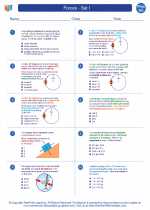Bismuth
Bismuth is a chemical element with the symbol Bi and atomic number 83. It is a post-transition metal and one of the pnictogens, chemically resembles its lighter homologs arsenic and antimony. Bismuth is the most naturally diamagnetic element, and has one of the lowest values of thermal conductivity among metals.
Physical Properties
Bismuth is a brittle metal with a white, silver-pink hue, often occurring in its native form. It is a relatively rare element in the Earth's crust and is usually found in the ores bismuthinite and bismite.
Chemical Properties
Bismuth is not very reactive and does not tarnish easily. It reacts with halogens to form trihalides and with oxygen to form oxides. Bismuth also forms alloys with other metals, such as bismuth bronze and Wood's metal.
Applications
Bismuth has several applications, including its use in pharmaceuticals, cosmetics, and pigments. It is also used in some metal alloys and as a replacement for lead in some applications due to its low toxicity.
Study Guide
- What is the chemical symbol for bismuth?
- What is the atomic number of bismuth?
- What type of element is bismuth?
- Describe the physical properties of bismuth.
- How does bismuth react with halogens?
- What are some of the applications of bismuth?
[Bismuth] Related Worksheets and Study Guides:
.◂Physics Worksheets and Study Guides High School. Forces - Set I

 Worksheet/Answer key
Worksheet/Answer key
 Worksheet/Answer key
Worksheet/Answer key
 Worksheet/Answer key
Worksheet/Answer key
